the @elastic relicense is progress — actually #kibana is starting: https://t.co/ivCLnC78Wl this is a friday evening operation since it changes ~20K files and will cause conflicts in many open PRs since it's a confusing and very emotional topic, let's where things are going 1/10
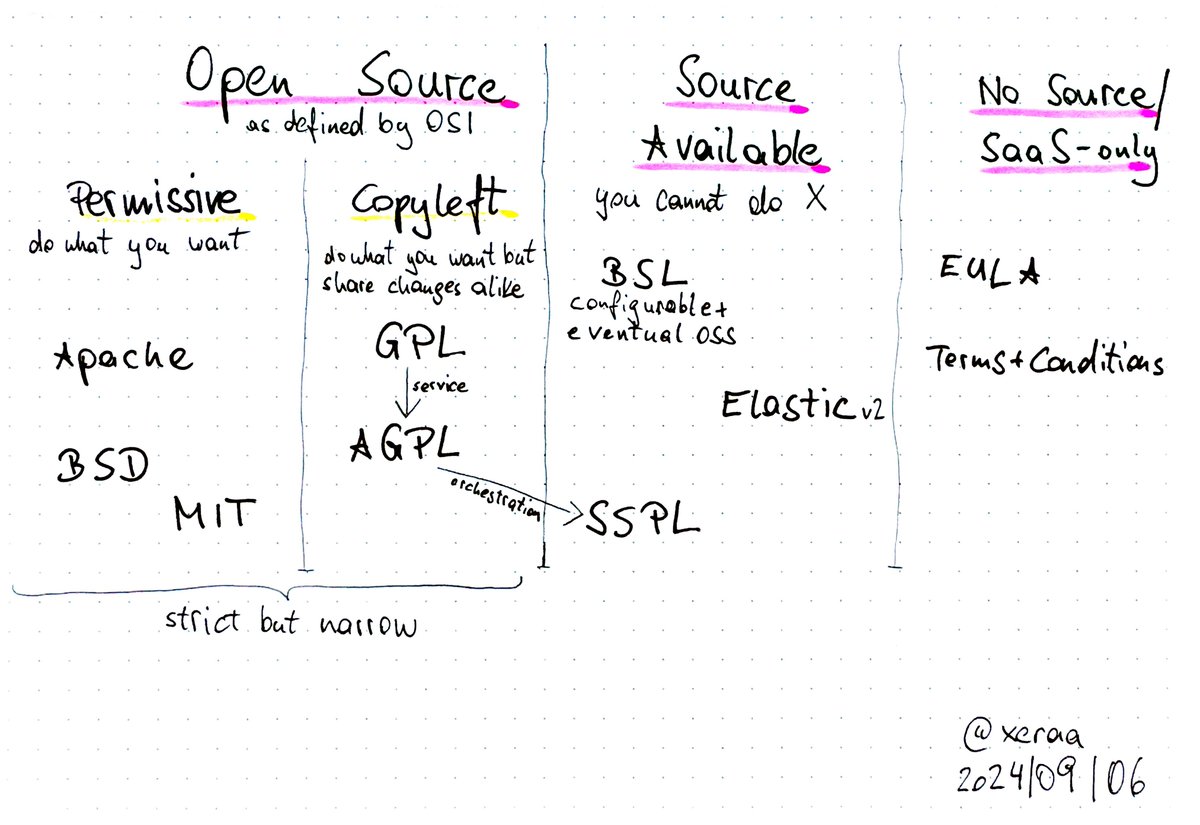
open source is coming in 2 broad flavors: * permissive "do what you want" with the apache license 2.0 as a popular choice: this is what #logstash (dual-licensed) and #elasticsearch language clients have always been using * copyleft "do what you want but share changes alike" 2/10
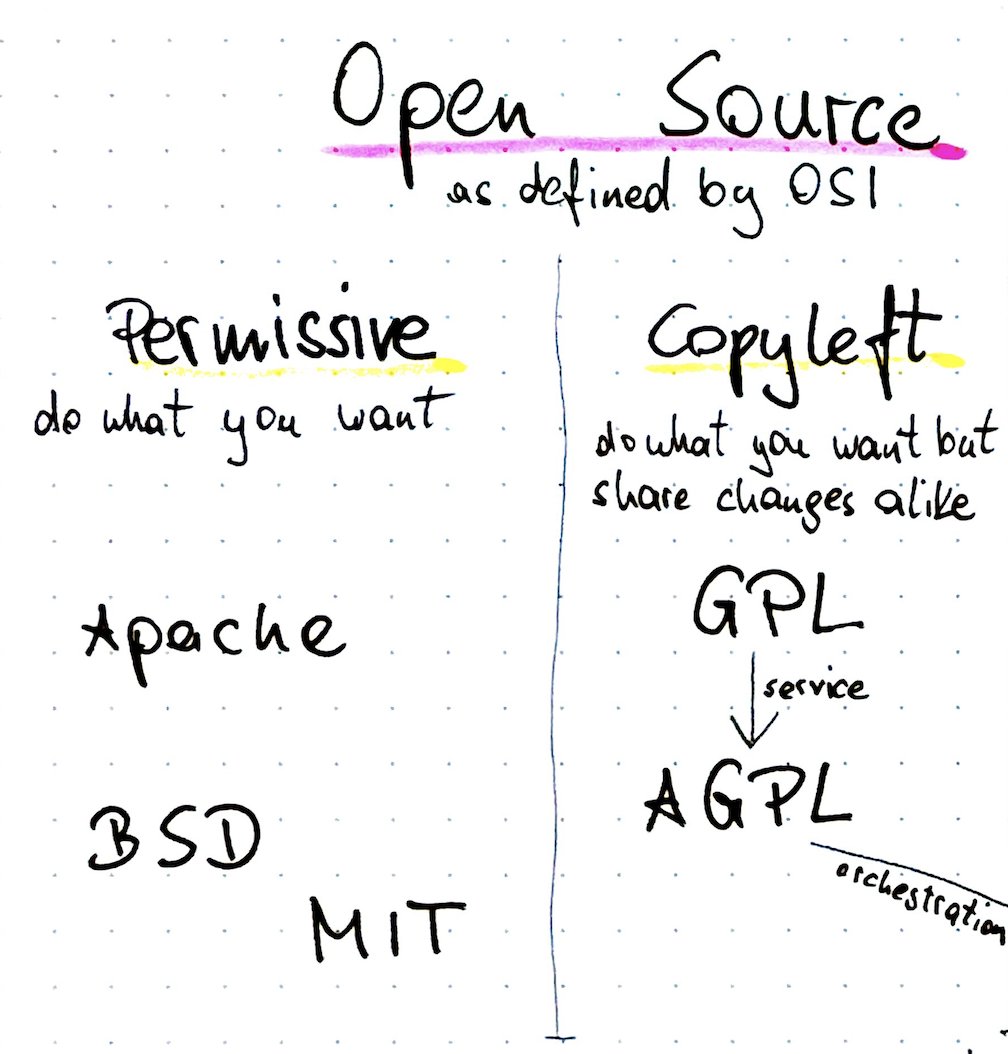
copyleft is almost like a family tree: * GPL to share the source code for binaries * AGPL to close the "service loophole" to share the source code for services; https://t.co/RXP7TiUWQg is an excellent read on the details 3/10
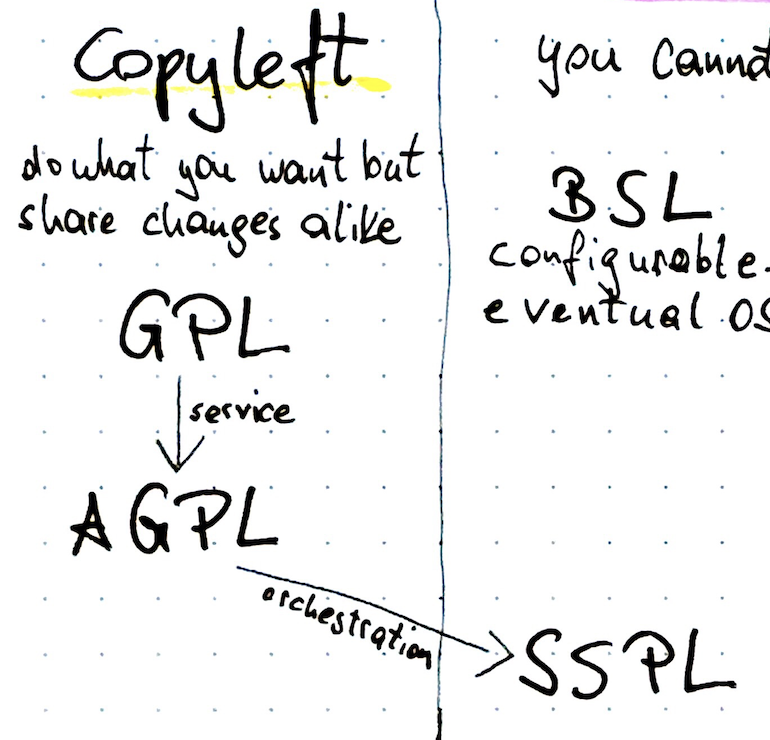
* SSPL (not OSI approved) is going a step further than the source code of the service and includes orchestration, monitoring,... of the service. if that fundamentally breaks copyleft is a heated discussion. I'm biased here but https://t.co/7yqkz47G7V is another great read 4/10
"defined by OSI": clearly a useful convention that we should stick to (and you'll get endless screaming otherwise). but the legal foundation is much weaker than you'd expect: https://t.co/zKzmVuwQE2 though the OSI wants you to believe otherwise: https://t.co/KM2OHFMMHg 5/10
source available gives you the source code but with some "you cannot do X" where X can be offering it as a service, competing,... some of the licenses are configurable, some are "eventual open source". but they all try to add some protection of their authors' investment 6/10
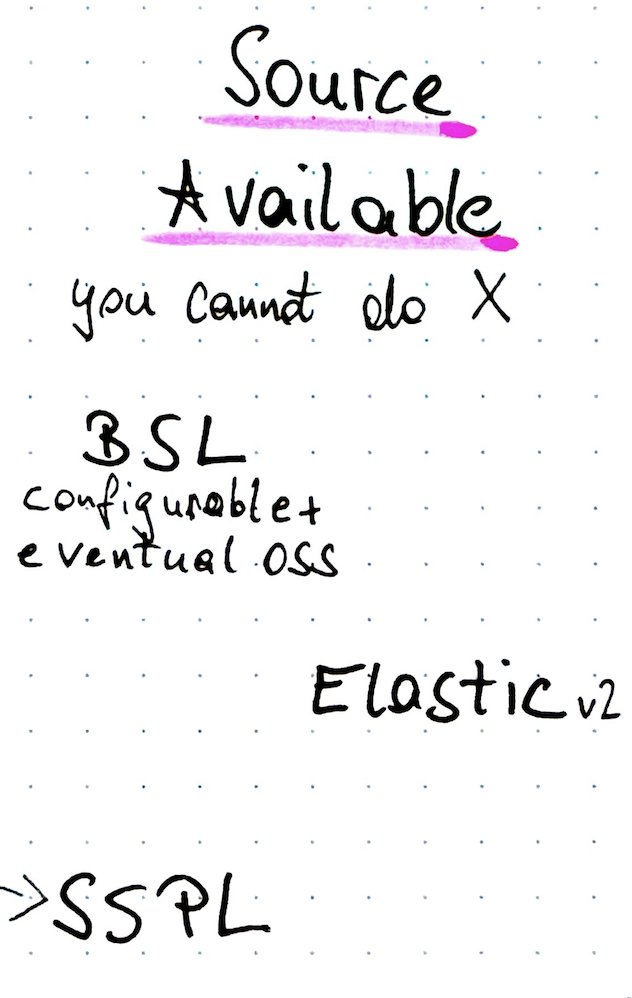
finally, the closed source group where you don't get any source code — either in the form of only being able to download a binary (which can still be free) or consuming it as a service 7/10
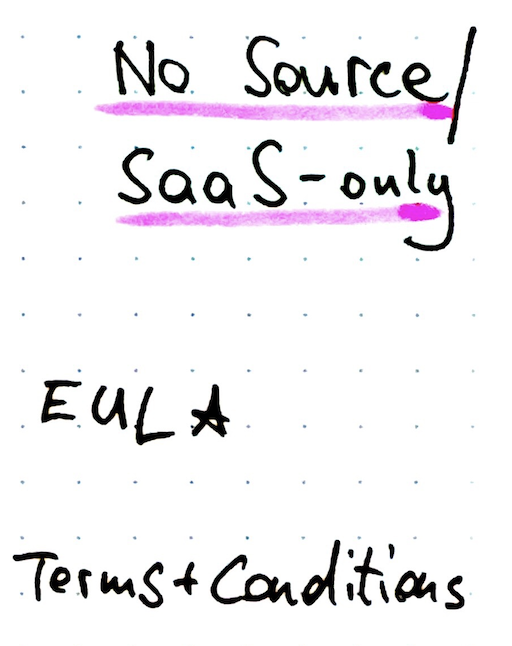
open source is both strict but also narrow. many people conflate license and ecosystem expectations but those are two different (though related) topics: governance, accepting contributions, including tests (which basically stops forks),... aren't covered by the license 8/10

if you have made it this far and want to see how this all maps to #elasticsearch + #kibana, the following image from the FAQ (https://t.co/s7Gz1Kp13d) is the best description, which should clear up most of the confusion 9/10
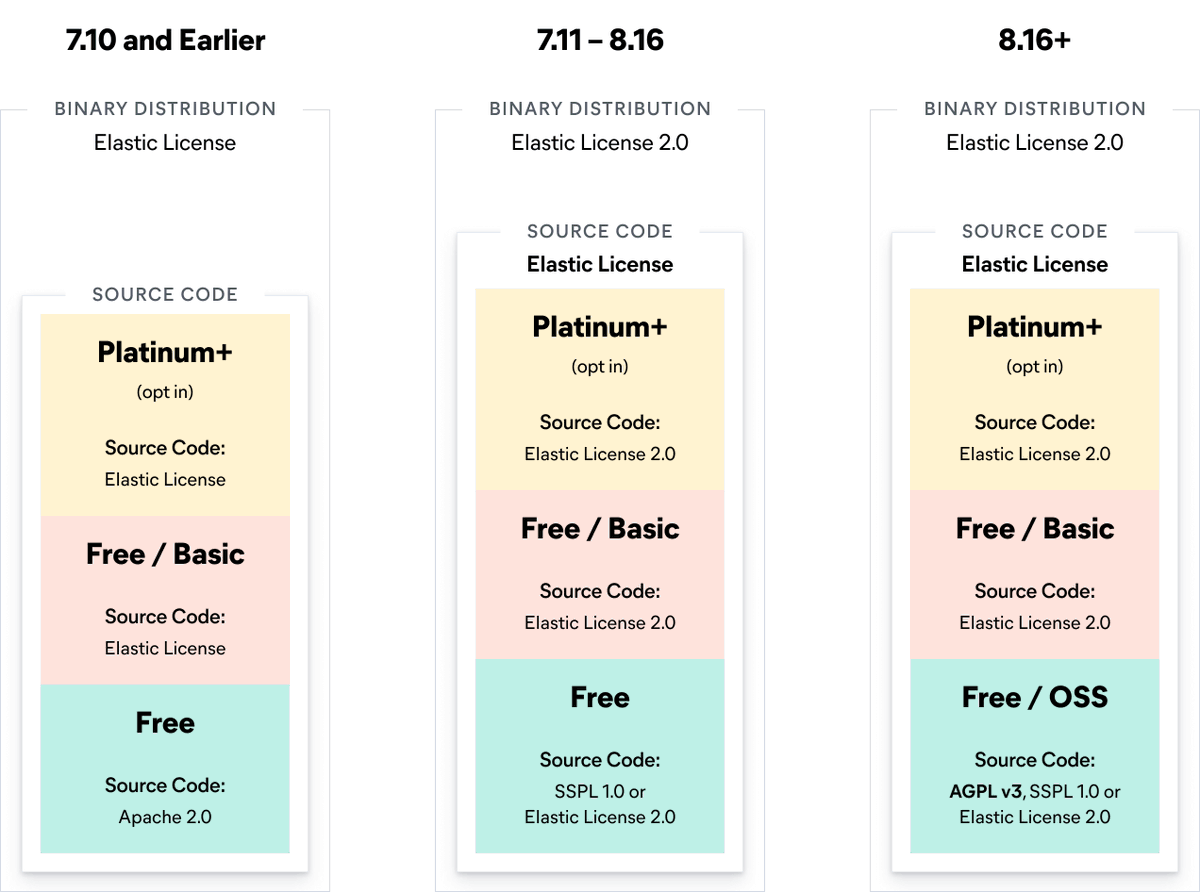
hope that helped and I'm already looking forward to heated responses. I might do another thread on common discussion points and how we see them in the elastic context. which is another interesting point: all relicenses had their own unique context making each one different 10/10
